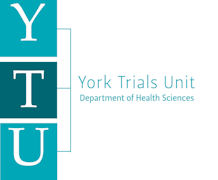A Randomised Controlled Trial of the Effect of a Two-layer Compression Bandage System on Knee Function Following Total Knee Arthroplasty (KReBS)
Total knee arthroplasty is a common and highly successful operation in the management of osteoarthritis. However, post-operative knee swelling is a common problem and results in decreased functional performance as a result of quadriceps weakness and arthrogenic reflex inhibition due to pain. This can delay rehabilitation, increase hospital length of stay and decrease patient reported outcomes.
Compression bandage therapy is an established treatment of venous ulcers and lymphoedema. It is hypothesised that the application of this external compression aids venous return and reduces hydrostatic pressure in the leg, subsequently allowing movement of fluid from the interstitial space. The use of inelastic bandages are preferred in arthroplasty as they have a low, tolerable resting pressure but a more effective activation of the deep venous system and calf muscle pump with ambulation compared to their elastic counterparts.
The use of compression bandages in elective orthopaedic knee surgery is well regarded, however, there is a lack of robust, well-designed trials to support this.
The aim is to conduct a multi-centre randomised controlled trial comparing the use of a two-layer compression bandage worn post-operatively for up to 48 hours after elective total knee replacement, compared to standard practice (non-compressive bandaging).
The study aims to test the hypothesis that the use of a two-layer compression bandage system improves function compared to standard wool and crepe bandage, following total knee replacement.
Patients will be approached to take part from participating hospitals and those who agree to be included in this trial will be allocated at random to either of the two treatments. The study aims to randomise 2600 patients in total (1300 patients in each arm).
Outcome will be assessed using a patient self-reported questionnaire which measures knee pain and function after one year.
The associated costs of both treatments to the NHS will also be evaluated.
Privacy Notice: How we use your research data
Funding
|
Funder(s): |
3M Healthcare |
| Start Date: | February 2017 |
| End Date: | January 2019 |
Members
KReBS is a joint collaboration between the Northumbria Healthcare NHS Foundation Trust (trial sponsor) and the University of York (trial management, statistics and health economics).
Internal Staff
External Collaborators
Training Tools
Summary Results
Methods
Multi-centred pragmatic randomised controlled trial. The primary outcome was the Oxford Knee Score (OKS) at 12 months post-randomisation. Secondary outcomes included: health-related quality of life, post-operative pain, length of hospital stay, costs and complications, e.g. return to surgery.
Findings
2330 eligible participants were randomised across 26 recruiting sites in the NHS.
Data from 1700 participants were included in the primary analysis (73.0%, compression bandaging n=890, 73.4%; usual care n=810, 72.5%).
There was no difference in the primary outcome at 12 months (0.29, 95% confidence interval (CI) -0.60 to 1.20, p=0.52).
There were no differences in any of the secondary outcomes.
The economic analysis found that compression bandages were more costly and generated fewer quality-adjusted life years (QALYs) than usual care; hence, compression bandages were dominated by usual care.
More non-serious adverse events were observed in the compression bandage arm.
Interpretation
Clinical and cost effectiveness data yielded no strong evidence of benefit to support the use of compression bandages following TKR.

![]()

